Many teachers may not be aware of the research and resources that can support teachers in improving the writing skills of advanced EAL learners. The research on ‘Writing in English as an additional language at KS 2’, undertaken by Professor Cameron and Dr Besser at the University of Leeds on behalf of the DCSF is very useful. This was shortly followed by Ofsted’s ‘Could they do even better’ which identified the need for teachers to be aware of the specific linguistic needs of advanced bilingual learners, along with detailed case studies to illustrate the difference that effective intervention, addressing specific linguistic features, can make to the development of the writing skills of advanced bilingual learners. A few years later PNS developed materials entitled ‘Teaching units to support guided writing in English as an additional language’, for teachers and teaching assistants to support the development of writing of advanced EAL learners. Although these publications may now seem dated, they are in fact still very relevant and pertinent. They are recommended for use by teachers who wish to find out more about the specific issues their advanced EAL learners face in writing in KS2, and how they can support their pupils to do better in their KS 2 writing SATS papers.
Professor Lynne Cameron and Dr Sharon Besser analysed Key Stage 2 SATS writing papers in 2003 to see if there were any significant differences in the writing of Year 6 pupils for whom English was an additional language (EAL), with a specific focus on advanced learners and those for whom it was their mother tongue (EMT). They compared 264 scripts by focusing on text, sentence and word level. The 2003 scripts had two tasks - one story and a radio advertisement. The story writing task consisted of a set of pictures leading to a problem for the main characters, which pupils had to resolve and conclude. The shorter task was to write an advertisement for local radio to persuade listeners to buy a new toy.
Their analysis of the scripts are summarised below in tables from their publication (pages 11-14), with significant differences highlighted by the dark boxes.
The teaching units can be used by trained adults working with small groups of children in Years 2-6 or as part of quality first teaching in lessons.
Equitable Education is able to provide specialist advice and training to support all staff working with advanced EAL learners. For further information, please contact Equitable Education on [email protected]
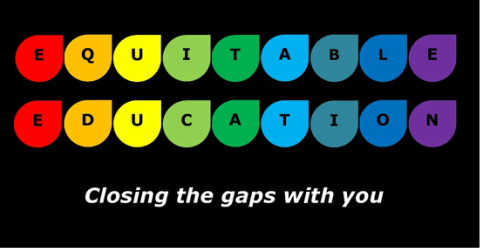
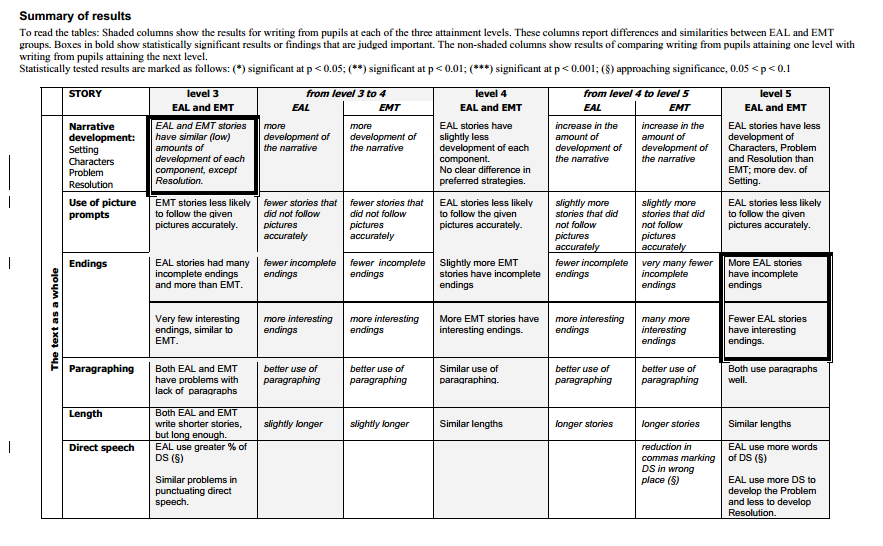
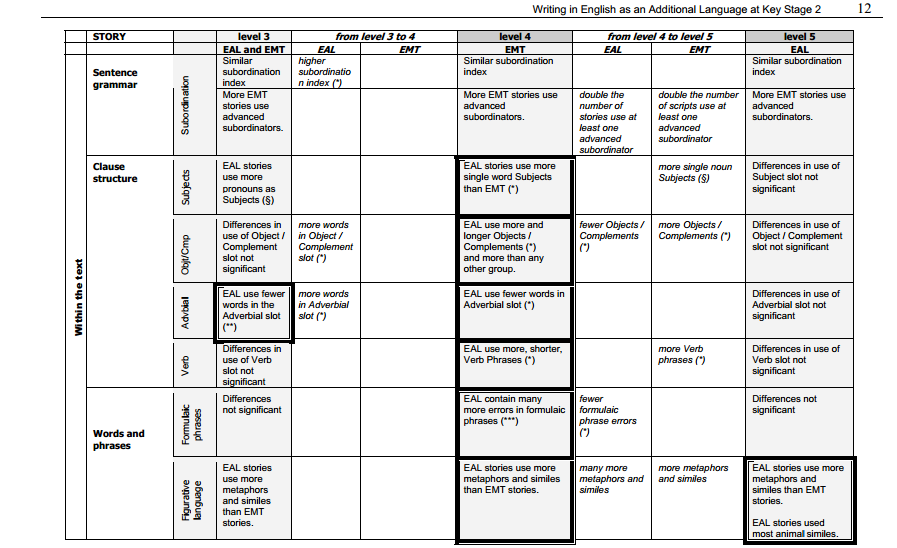
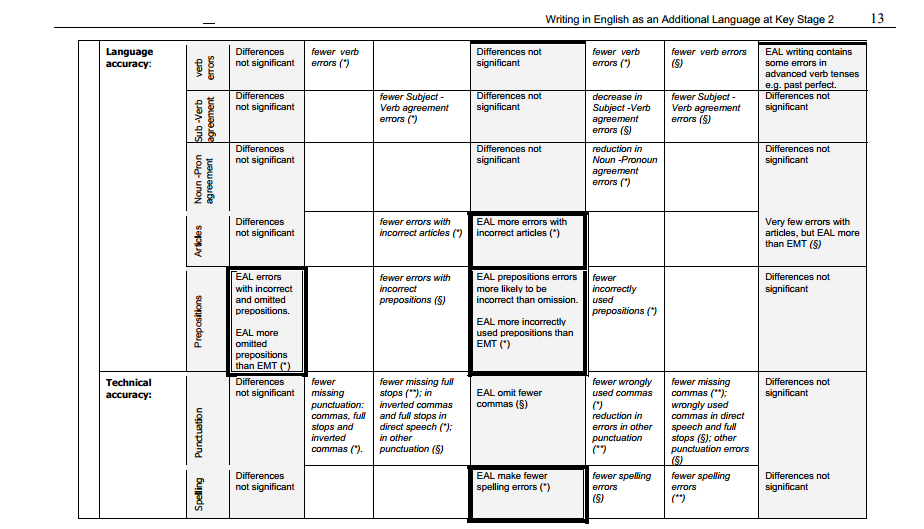

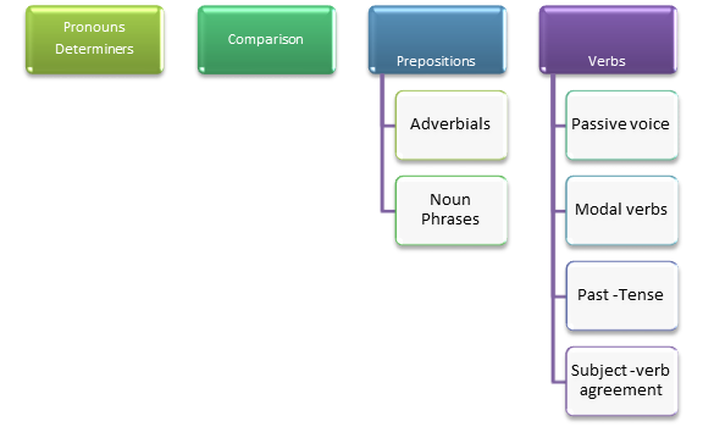
 RSS Feed
RSS Feed
